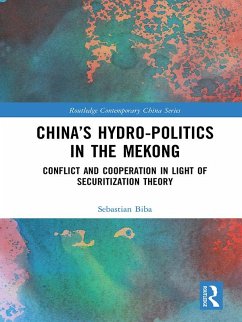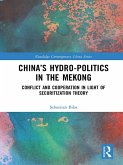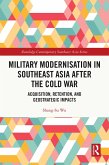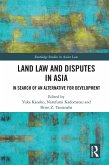China's Hydro-politics in the Mekong explores the intricate processes of conflict and cooperation over the use of water resources in the Mekong river basin between upstream China and the downstream countries of Laos, Thailand, Cambodia, and Vietnam.a The book tackles two gaps in the empirical literature: first, the neglect of international hydro-politics as one specific and increasingly important issue area of China's foreign policy behavior, especially its neighborhood diplomacy; and second, the disregard of China's role in Mekong River politics. In particular, this book scrutinizes the 'spring 2010 Mekong crisis' and the events surrounding it which led to a series of complex multi-level, security-related interactions among various state and non-state actors in the region, with China at the center. Analyzing this crisis, the book not only employs securitization theory as its theoretical framework and adds a couple of innovations to this theory, but also gives a detailed account of China's hydro-political behavior in one specific and particularly revealing case study. Moreover, the book embeds China's Mekong hydro-politics in the bigger picture of its (sub-)regional international affairs, as the former does not take place in a vacuum, but rather is a part of China's overall foreign relations with its neighbors. The book acknowledges this link and provides new insights into the role of hydro-politics and its relationship vis-vis other issue areas of China's foreign policy.a
Dieser Download kann aus rechtlichen Gründen nur mit Rechnungsadresse in A, B, BG, CY, CZ, D, DK, EW, E, FIN, F, GR, HR, H, IRL, I, LT, L, LR, M, NL, PL, P, R, S, SLO, SK ausgeliefert werden.









